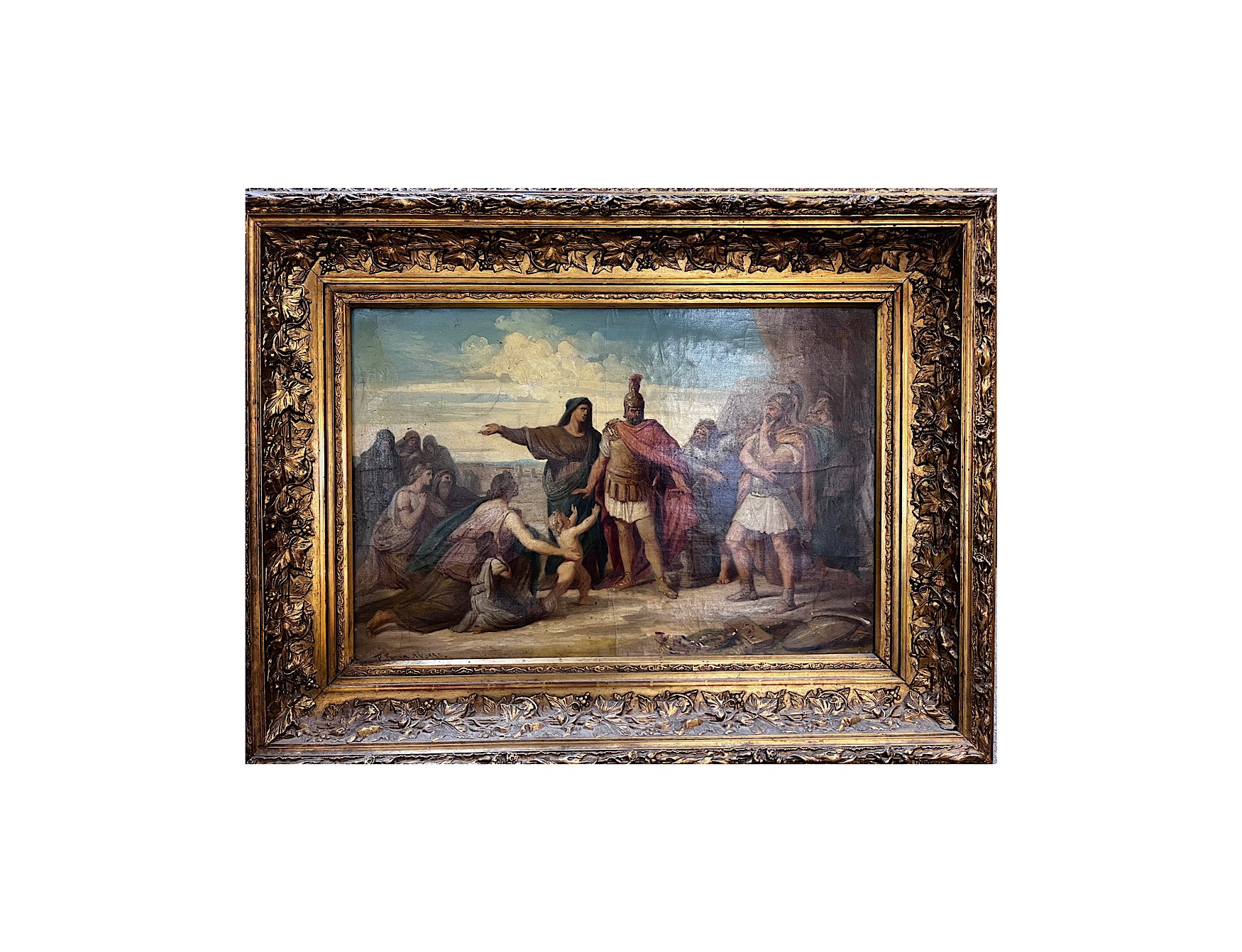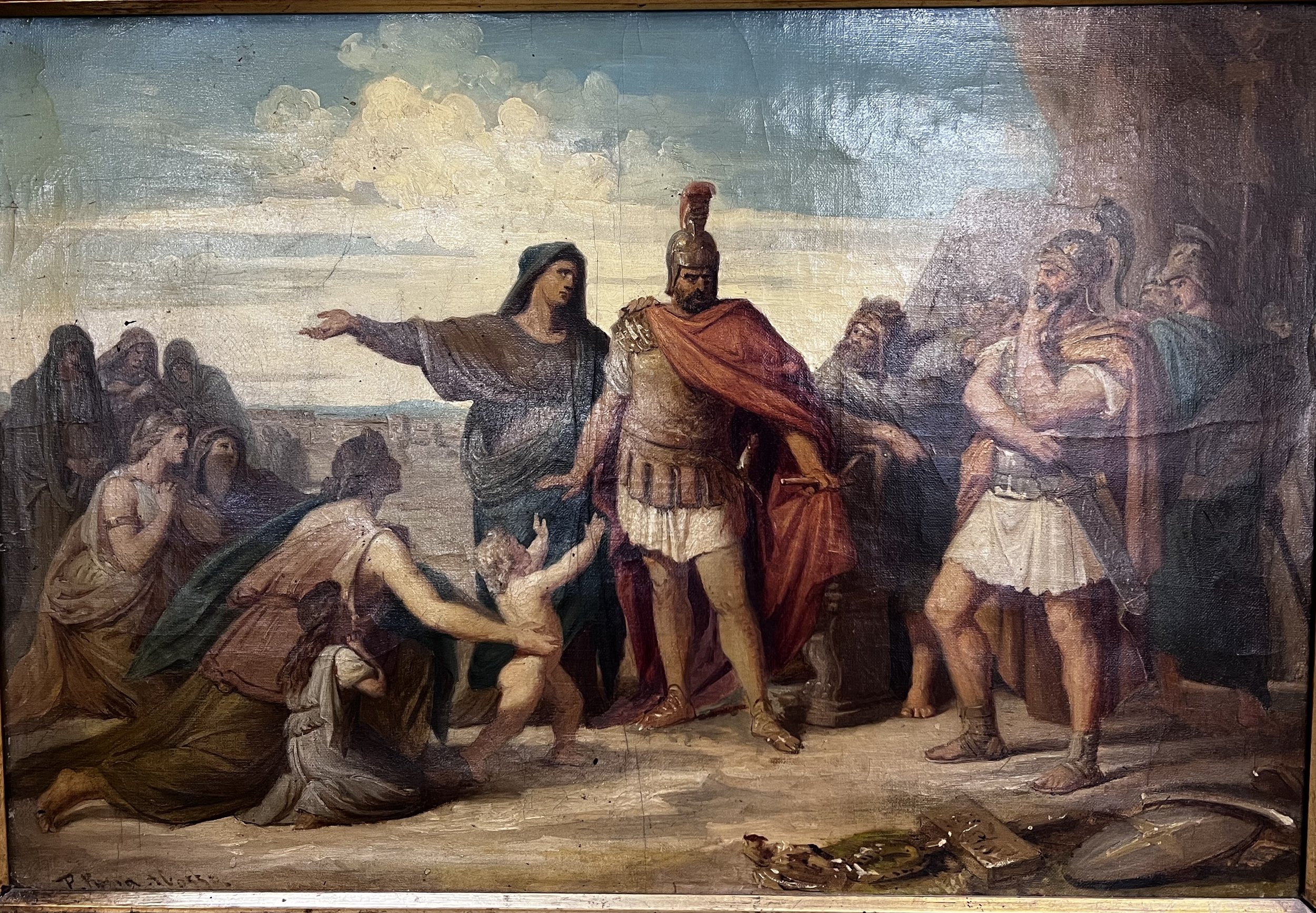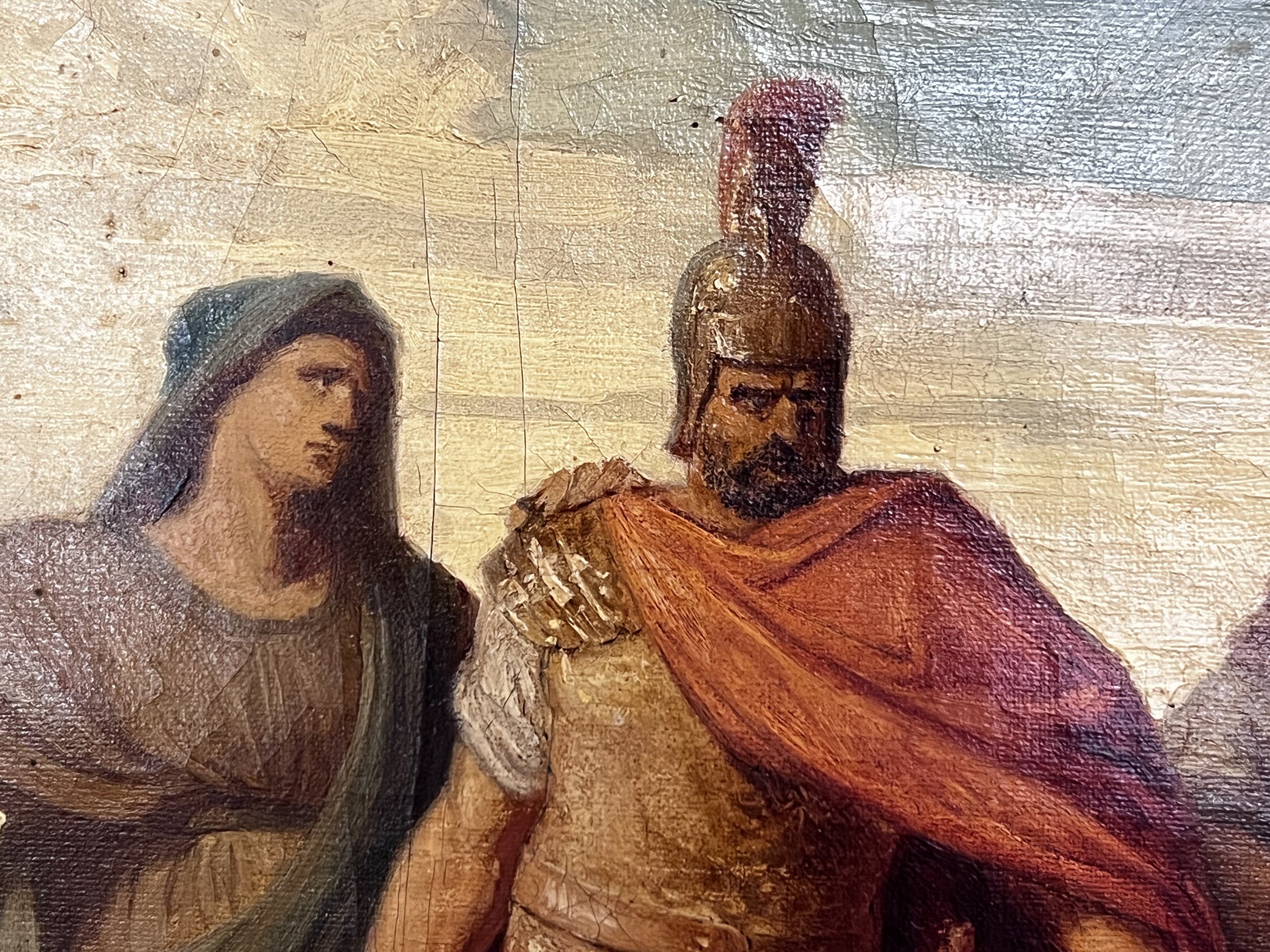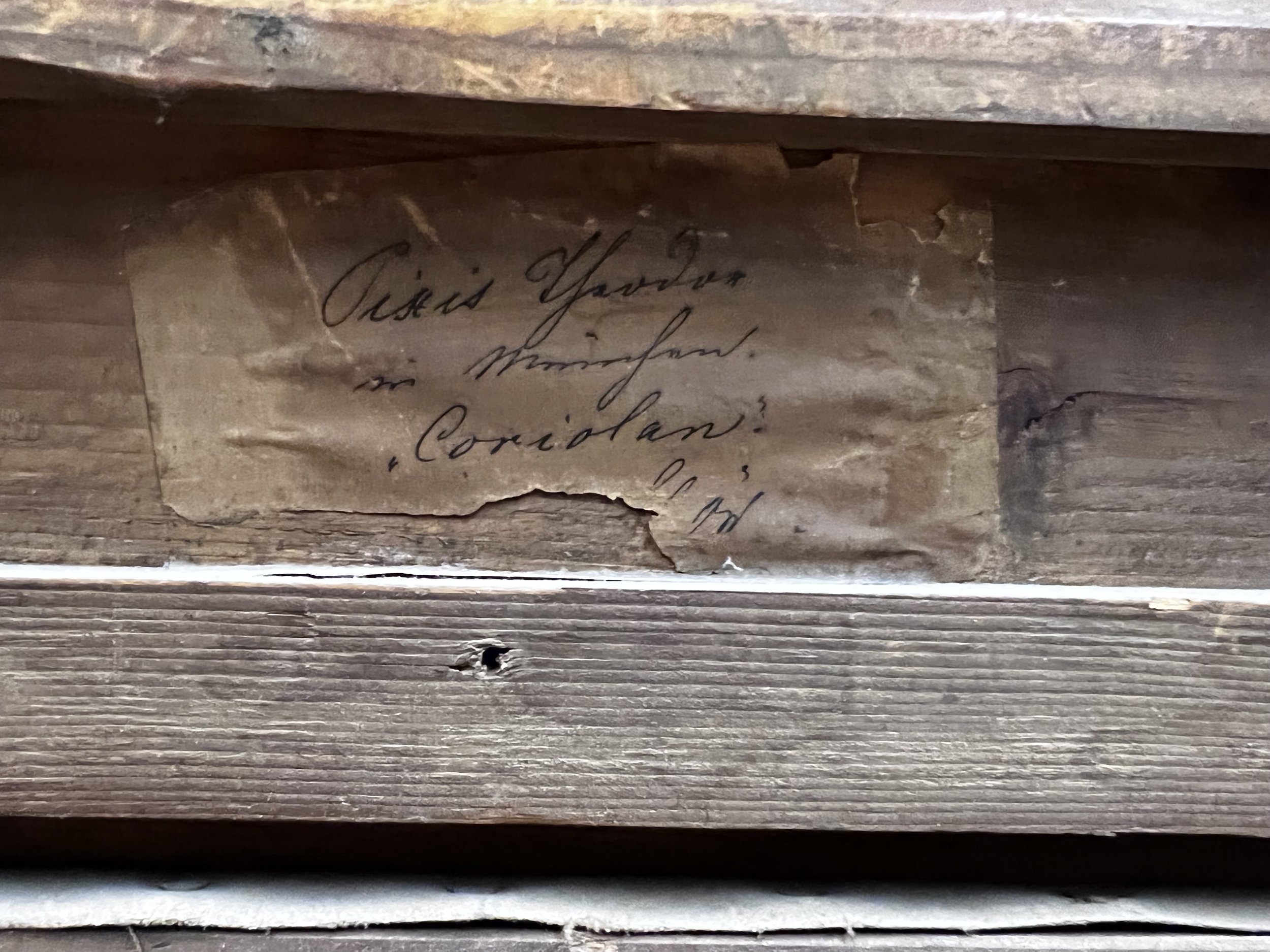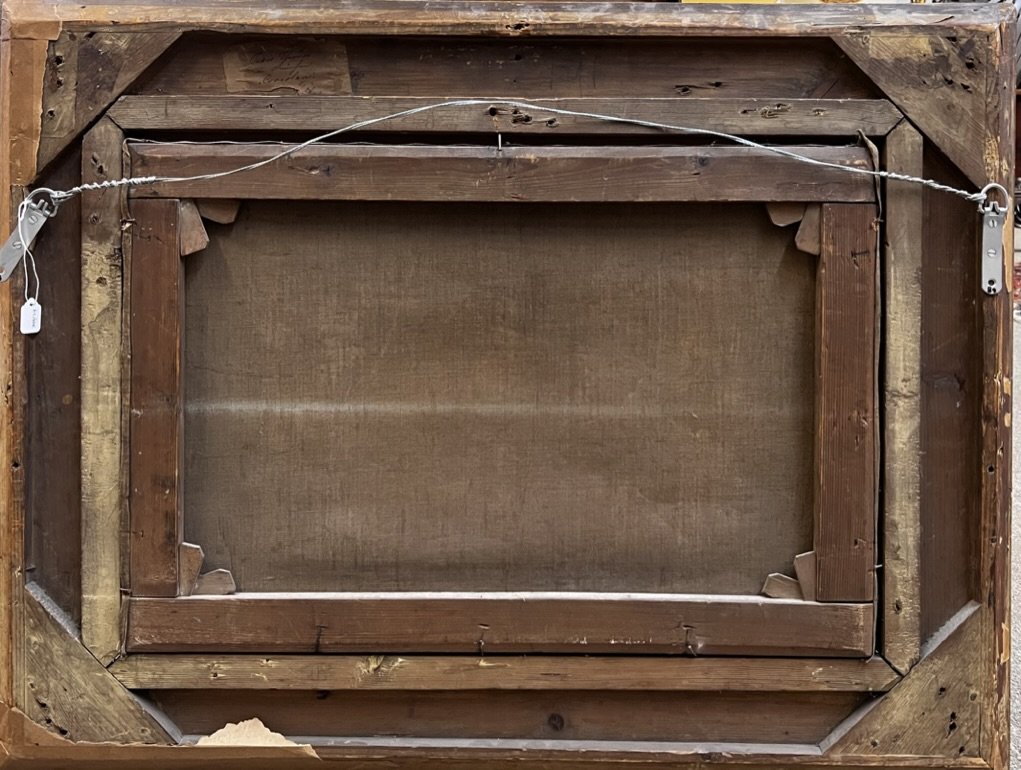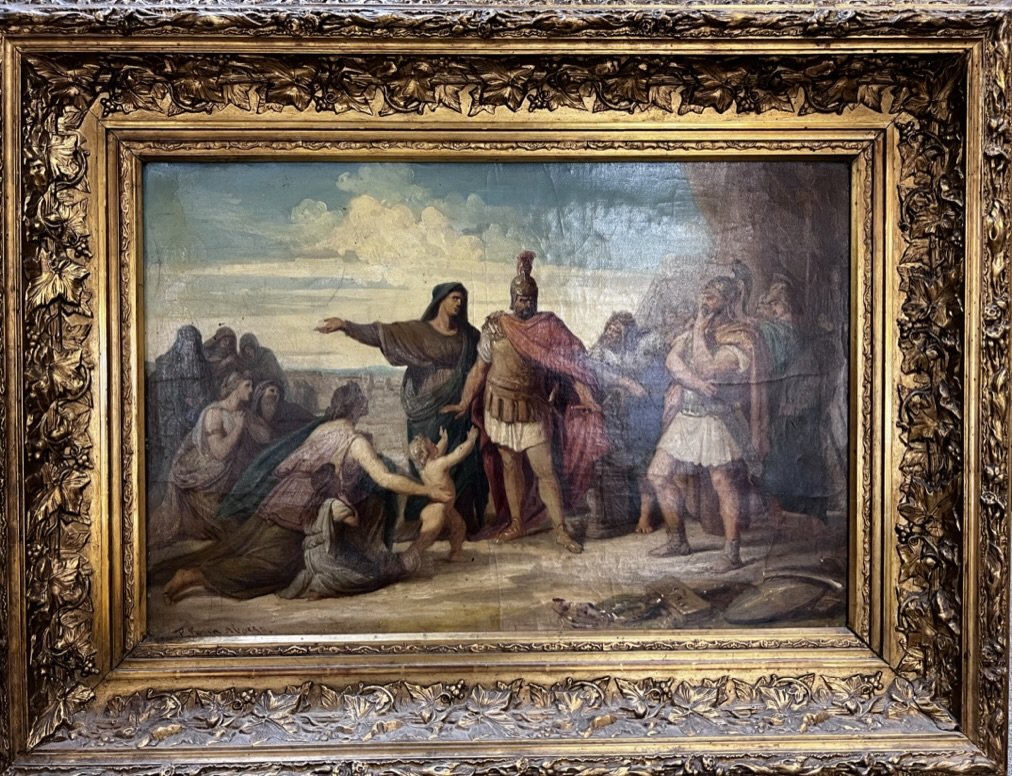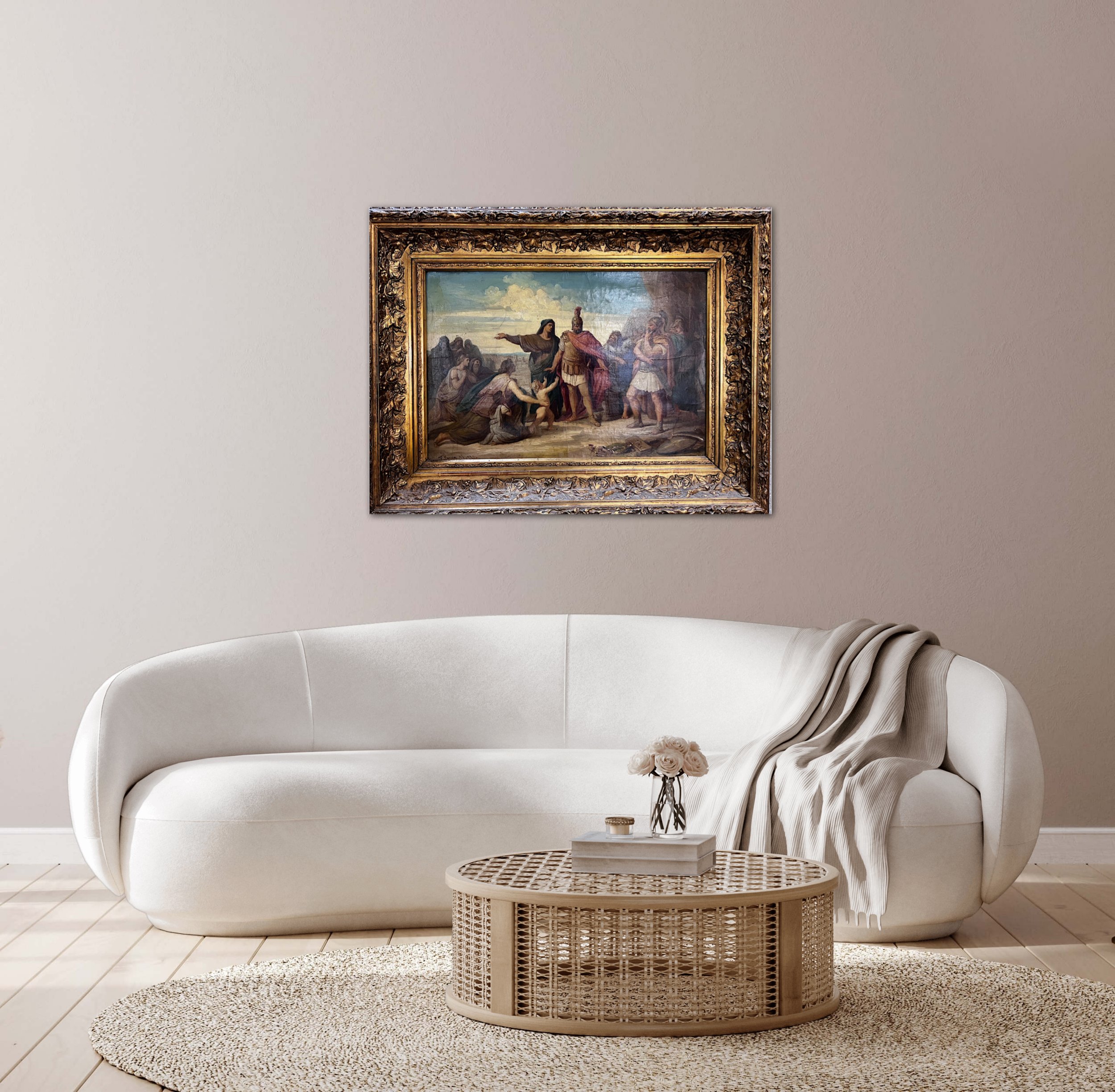Scene from Shakespeare "Coriolan"
A scene from the tragedy play “Coriolan”.
Signature illegible. Lower left
oil on canvas
c. 1840-1860?, and most likely Italian
Framed 37”x26” - Seemingly original frame
Very heavy frame
In 1807, Beethoven writes an overture depicting a Roman leader's transition from brutality to tenderness. Inspired on the story of Roman leader Gaius Marcius Coriolanus by Heinrich Joseph von Collin, but based on one of Shapespeare’s less frequently performed tragedies in 1605-08.
This scene in the lovely painting probably depicts that moment, when a shout is raised, and Virgilia, Volumnia, Valeria, and Young Martius, Coriolanus's son, arrive from Rome. Coriolanus vows to harden his heart against them but allows them to approach, and his mother kneels before him and begs him to make peace and not attack Rome. She tells him that she will block his path to Rome: Meanwhile, his son pledges that when he has grown older, he will fight against his father. Coriolanus, moved, starts to leave, but his mother stops him and asks him again to make an honorable peace, one that rewards Romans and Volscians alike, rather than destroy his native city.
But Coriolanus has been won over; he pledges to make peace immediately.
Oil on canvas
A scene from the tragedy play “Coriolan”.
Signature illegible. Lower left
oil on canvas
c. 1840-1860?, and most likely Italian
Framed 37”x26” - Seemingly original frame
Very heavy frame
In 1807, Beethoven writes an overture depicting a Roman leader's transition from brutality to tenderness. Inspired on the story of Roman leader Gaius Marcius Coriolanus by Heinrich Joseph von Collin, but based on one of Shapespeare’s less frequently performed tragedies in 1605-08.
This scene in the lovely painting probably depicts that moment, when a shout is raised, and Virgilia, Volumnia, Valeria, and Young Martius, Coriolanus's son, arrive from Rome. Coriolanus vows to harden his heart against them but allows them to approach, and his mother kneels before him and begs him to make peace and not attack Rome. She tells him that she will block his path to Rome: Meanwhile, his son pledges that when he has grown older, he will fight against his father. Coriolanus, moved, starts to leave, but his mother stops him and asks him again to make an honorable peace, one that rewards Romans and Volscians alike, rather than destroy his native city.
But Coriolanus has been won over; he pledges to make peace immediately.
Oil on canvas
A scene from the tragedy play “Coriolan”.
Signature illegible. Lower left
oil on canvas
c. 1840-1860?, and most likely Italian
Framed 37”x26” - Seemingly original frame
Very heavy frame
In 1807, Beethoven writes an overture depicting a Roman leader's transition from brutality to tenderness. Inspired on the story of Roman leader Gaius Marcius Coriolanus by Heinrich Joseph von Collin, but based on one of Shapespeare’s less frequently performed tragedies in 1605-08.
This scene in the lovely painting probably depicts that moment, when a shout is raised, and Virgilia, Volumnia, Valeria, and Young Martius, Coriolanus's son, arrive from Rome. Coriolanus vows to harden his heart against them but allows them to approach, and his mother kneels before him and begs him to make peace and not attack Rome. She tells him that she will block his path to Rome: Meanwhile, his son pledges that when he has grown older, he will fight against his father. Coriolanus, moved, starts to leave, but his mother stops him and asks him again to make an honorable peace, one that rewards Romans and Volscians alike, rather than destroy his native city.
But Coriolanus has been won over; he pledges to make peace immediately.
Oil on canvas

